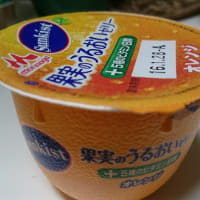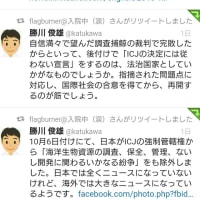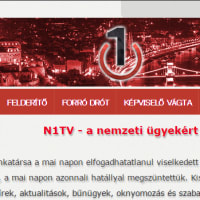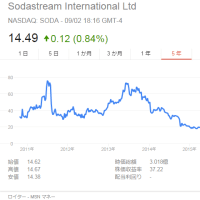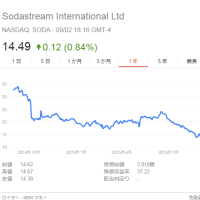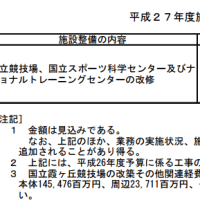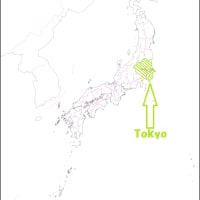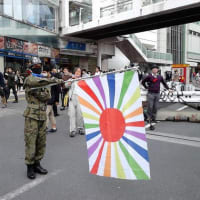Pew Research Group の一部門である Pew Environment Group が、世界全体における クロマグロの漁獲高に関する調査報告書を公表していたのだが・・・。
・クロマグロの販売量、報告漁獲量の2倍 米環境団体調査(2011年10月25日 afpbb.com)
・Environment group: Bluefin tuna under pressure as twice as much traded as quotas allow for(2011年10月19日 washingtonpost.com;AP)
クロマグロの漁獲については、一応 大西洋まぐろ類保存国際委員会(ICCAT)などが規制を行ってるらしい。
が、Pew~の調査は、それがあまり機能してないと指摘してるようなもんだった
以下、2011年10月19日分 afpbb.com『クロマグロの~』の前半部分を(略
---- 以下引用 ----
【10月25日 AFP】
2010年に大西洋のクロマグロとして販売された魚肉は、重量ベースで正式な漁獲記録の2倍に上っていたことが、18日に米環境NGO「ピュー環境グループ(Pew Environment Group)」が発表した報告書で明らかになった。
貿易統計によると2009年と2010年に取引されたクロマグロは合わせて7万500トン以上だったが、これは大西洋まぐろ類保存国際委員会(International Commission for the Conservation of Atlantic Tunas、ICCAT)が調べた同じ期間の漁獲量の2倍だった。
今回の報告書を執筆したロベルト・ミエルゴ(Roberto Mielgo)氏は「現在の紙ベースの漁獲量情報管理の制度は不正や情報の誤り、報告の遅れの温床になっている。大幅な改善が必要だ」と指摘する。
ICCATは2008年に漁獲量報告と国別の漁獲量割当の順守を強化したが、クロマグロの記録上の漁獲量と実際の漁獲量の食い違いを防げなかった。
ICCATの科学委員会は漁業資源が枯渇する恐れがあると繰り返し警告していたが、2010年になるまでICCATは科学委員会の勧告よりもかなり多い漁獲量を割り当てていた。
目標漁獲量が科学委員会の勧告の範囲内に落ち着いたのは、地中海と北東大西洋で1万2900トンと定められた2010年が初めてだった。
11月11~19日にトルコのイスタンブール(Istanbul)で行われるICCAT総会を前に発表されたこの報告書から、クロマグロの漁獲量制限やコンプライアンス強化策がきちんと守られていないことがうかがえる。
ミエルゴ氏によると、地中海で捕獲したマグロの稚魚をいけすで大きく育てる「畜養」で、「いけすに運ばれたと報告されたより多いクロマグロが出荷されている」ことが漁獲量のずれの主な原因だという。
(以下略)
---- 引用以上 ----
目標漁獲量、ね。
この辺りについては、当然(?)Pew~の報告書がまとめていた(元ネタは日本政府などが公表した漁獲量)。
・Counting Fish(2011年10月18日 pewenvironment.org)
以下、2011年10月18日分 pewenvironment.org『Counting Fish』から、ICCAT が過去6年に定めた大西洋クロマグロの総漁獲量と実際の総漁獲量を(略
*ICCAT の定めた総漁獲量(単位:トン)
・2004年:37,633.4
・2005年:36,825.8
・2006年:35,833.2
・2007年:31,722.8
・2008年:29,082.3
・2009年:21,780.5
・2010年:13,525.4
*実際の総漁獲高(単位:トン)
・2004年:39,394.7
・2005年:48,917.6
・2006年:49,376.5
・2007年:50,299.9
・2008年:37,970.4
・2009年:38,080.8
・2010年:32,564.9
過去3年は総漁獲高そのものが減少に転じてるようだが・・・。
このような事態になってるのは、ICCAT が打ち出したクロマグロの漁獲管理制度(BCD:bluefin catch document)がザルってのも一因らしい。
・An Electronic BluefinCatch Document(2011年10月17日 pewenvironment.org)
以下、2011年10月17日分 pewenvironment.org『An Electronic~』から、BCD の現状と ICCAT への要請を(略
---- 以下引用 ----
(中略)
The BCD System
ICCAT mandated the use of a BCD system in 2007 after widespread reports of large quota overages and continued IUU fishing.
The system was designed to assign a unique ID number and track each catch of fish as it moved through the supply chain, allowing customs officials, enforcement officers and buyers to verify the tuna’s origin and legality.
Information from the BCD was also to be used by scientists as they determined the status of the populations.
Unfortunately, the paper-based BCD has failed to fully address the problems of IUU fishing.
Printed documents can easily be altered or forged, allowing illegally caught fish to enter the market.
In July, the Italian coast guard revealed a widespread, well-established trafficking operation of falsifying and avoiding bluefin catch documents[引用者注].
Paper-based documents also slow data collection and reporting, inhibiting effective management of the species.
As of November 2010, crucial information was still missing from ICCAT’s BCD database for 75 percent of the purse-seine catches from 2008 and 2009.
The Solution
ICCAT has started to address the inherent problems in the BCD system.
In 2010, recognizing the need for an electronic system, the commission formed a working group to design, develop, and implement an eBCD in time for the 2012 bluefin tuna fishing season.
ICCAT members must continue to support these efforts and secure funding for a comprehensive electronic documentation system that reduces fraud, increases compliance, and allows for more accurate and timely reporting of catch data.
The Pew Environment Group calls on ICCAT to adopt a system that includes, at a minimum:
・A central, secure database storing the data generated by the eBCD that can be accessed easily by authorized users.
・A bar-coding system that allows operators to generate a physical label, linked to the eBCD system, which would allow individual fish to be tagged and easily tracked through the supply chain.
・A requirement that all information contained in the eBCD be checked and validated by the appropriate authority before the fish could move through the supply chain.
引用者注:この件で、サルディニア自治州は少なくても100以上の企業の関与を指摘していた・・・。
・L'UNIONE SARDA - Cronache : La truffa del tonno rosso(2011年7月26日 regione.sardegna.it;イタリア語)
・Traffico internazionale di tonno rosso: stroncato giro da 4 milioni(2011年7月26日 LA NUOVA;イタリア語)
---- 引用以上 ----
BCD を紙媒体ベースにしたのは、クロマグロを輸出入する各国の事情(電子文書の管理に必要な設備や法制度の状況)を踏まえた上でのことなんだろうが・・・。
今日び、紙媒体ベースで漁獲量の記録管理ってのも色々問題な気がする俺。
もっとも、BCD を電子文書をベースにしても、データの捏造や改竄を防げるわけじゃないけど・・・。
それにしても。
来月の ICCAT 総会で、日本政府はこの問題についてどういう態度を示すんだろうか?
・クロマグロの販売量、報告漁獲量の2倍 米環境団体調査(2011年10月25日 afpbb.com)
・Environment group: Bluefin tuna under pressure as twice as much traded as quotas allow for(2011年10月19日 washingtonpost.com;AP)
クロマグロの漁獲については、一応 大西洋まぐろ類保存国際委員会(ICCAT)などが規制を行ってるらしい。
が、Pew~の調査は、それがあまり機能してないと指摘してるようなもんだった
以下、2011年10月19日分 afpbb.com『クロマグロの~』の前半部分を(略
---- 以下引用 ----
【10月25日 AFP】
2010年に大西洋のクロマグロとして販売された魚肉は、重量ベースで正式な漁獲記録の2倍に上っていたことが、18日に米環境NGO「ピュー環境グループ(Pew Environment Group)」が発表した報告書で明らかになった。
貿易統計によると2009年と2010年に取引されたクロマグロは合わせて7万500トン以上だったが、これは大西洋まぐろ類保存国際委員会(International Commission for the Conservation of Atlantic Tunas、ICCAT)が調べた同じ期間の漁獲量の2倍だった。
今回の報告書を執筆したロベルト・ミエルゴ(Roberto Mielgo)氏は「現在の紙ベースの漁獲量情報管理の制度は不正や情報の誤り、報告の遅れの温床になっている。大幅な改善が必要だ」と指摘する。
ICCATは2008年に漁獲量報告と国別の漁獲量割当の順守を強化したが、クロマグロの記録上の漁獲量と実際の漁獲量の食い違いを防げなかった。
ICCATの科学委員会は漁業資源が枯渇する恐れがあると繰り返し警告していたが、2010年になるまでICCATは科学委員会の勧告よりもかなり多い漁獲量を割り当てていた。
目標漁獲量が科学委員会の勧告の範囲内に落ち着いたのは、地中海と北東大西洋で1万2900トンと定められた2010年が初めてだった。
11月11~19日にトルコのイスタンブール(Istanbul)で行われるICCAT総会を前に発表されたこの報告書から、クロマグロの漁獲量制限やコンプライアンス強化策がきちんと守られていないことがうかがえる。
ミエルゴ氏によると、地中海で捕獲したマグロの稚魚をいけすで大きく育てる「畜養」で、「いけすに運ばれたと報告されたより多いクロマグロが出荷されている」ことが漁獲量のずれの主な原因だという。
(以下略)
---- 引用以上 ----
目標漁獲量、ね。
この辺りについては、当然(?)Pew~の報告書がまとめていた(元ネタは日本政府などが公表した漁獲量)。
・Counting Fish(2011年10月18日 pewenvironment.org)
以下、2011年10月18日分 pewenvironment.org『Counting Fish』から、ICCAT が過去6年に定めた大西洋クロマグロの総漁獲量と実際の総漁獲量を(略
*ICCAT の定めた総漁獲量(単位:トン)
・2004年:37,633.4
・2005年:36,825.8
・2006年:35,833.2
・2007年:31,722.8
・2008年:29,082.3
・2009年:21,780.5
・2010年:13,525.4
*実際の総漁獲高(単位:トン)
・2004年:39,394.7
・2005年:48,917.6
・2006年:49,376.5
・2007年:50,299.9
・2008年:37,970.4
・2009年:38,080.8
・2010年:32,564.9
過去3年は総漁獲高そのものが減少に転じてるようだが・・・。
このような事態になってるのは、ICCAT が打ち出したクロマグロの漁獲管理制度(BCD:bluefin catch document)がザルってのも一因らしい。
・An Electronic BluefinCatch Document(2011年10月17日 pewenvironment.org)
以下、2011年10月17日分 pewenvironment.org『An Electronic~』から、BCD の現状と ICCAT への要請を(略
---- 以下引用 ----
(中略)
The BCD System
ICCAT mandated the use of a BCD system in 2007 after widespread reports of large quota overages and continued IUU fishing.
The system was designed to assign a unique ID number and track each catch of fish as it moved through the supply chain, allowing customs officials, enforcement officers and buyers to verify the tuna’s origin and legality.
Information from the BCD was also to be used by scientists as they determined the status of the populations.
Unfortunately, the paper-based BCD has failed to fully address the problems of IUU fishing.
Printed documents can easily be altered or forged, allowing illegally caught fish to enter the market.
In July, the Italian coast guard revealed a widespread, well-established trafficking operation of falsifying and avoiding bluefin catch documents[引用者注].
Paper-based documents also slow data collection and reporting, inhibiting effective management of the species.
As of November 2010, crucial information was still missing from ICCAT’s BCD database for 75 percent of the purse-seine catches from 2008 and 2009.
The Solution
ICCAT has started to address the inherent problems in the BCD system.
In 2010, recognizing the need for an electronic system, the commission formed a working group to design, develop, and implement an eBCD in time for the 2012 bluefin tuna fishing season.
ICCAT members must continue to support these efforts and secure funding for a comprehensive electronic documentation system that reduces fraud, increases compliance, and allows for more accurate and timely reporting of catch data.
The Pew Environment Group calls on ICCAT to adopt a system that includes, at a minimum:
・A central, secure database storing the data generated by the eBCD that can be accessed easily by authorized users.
・A bar-coding system that allows operators to generate a physical label, linked to the eBCD system, which would allow individual fish to be tagged and easily tracked through the supply chain.
・A requirement that all information contained in the eBCD be checked and validated by the appropriate authority before the fish could move through the supply chain.
引用者注:この件で、サルディニア自治州は少なくても100以上の企業の関与を指摘していた・・・。
・L'UNIONE SARDA - Cronache : La truffa del tonno rosso(2011年7月26日 regione.sardegna.it;イタリア語)
・Traffico internazionale di tonno rosso: stroncato giro da 4 milioni(2011年7月26日 LA NUOVA;イタリア語)
---- 引用以上 ----
BCD を紙媒体ベースにしたのは、クロマグロを輸出入する各国の事情(電子文書の管理に必要な設備や法制度の状況)を踏まえた上でのことなんだろうが・・・。
今日び、紙媒体ベースで漁獲量の記録管理ってのも色々問題な気がする俺。
もっとも、BCD を電子文書をベースにしても、データの捏造や改竄を防げるわけじゃないけど・・・。
それにしても。
来月の ICCAT 総会で、日本政府はこの問題についてどういう態度を示すんだろうか?










